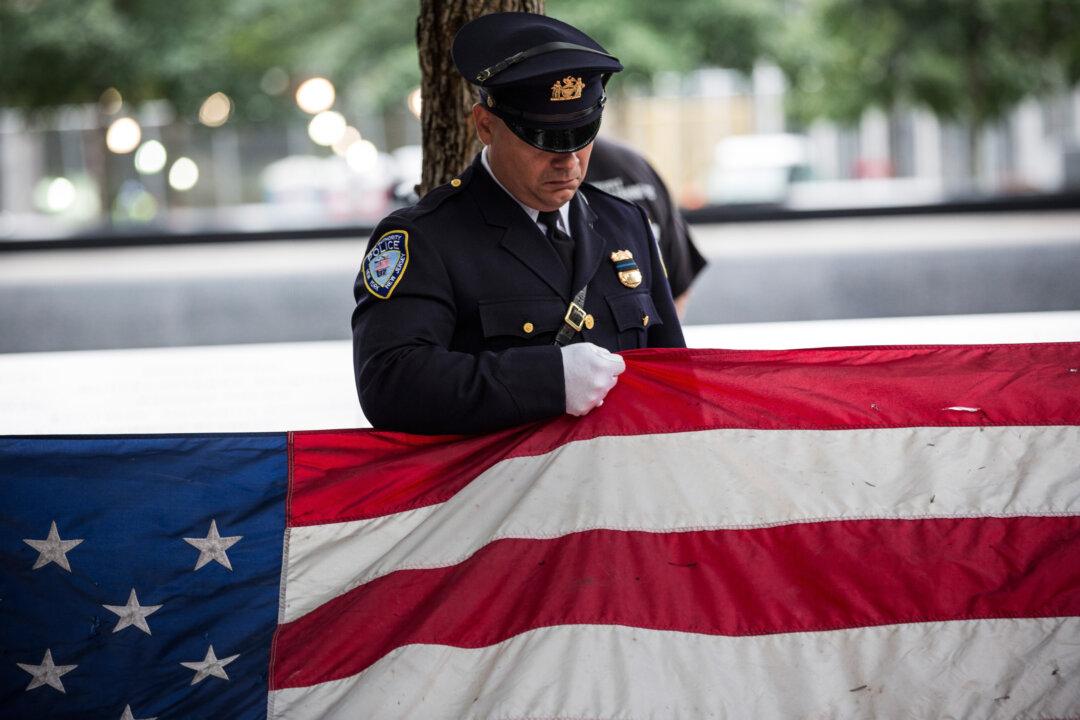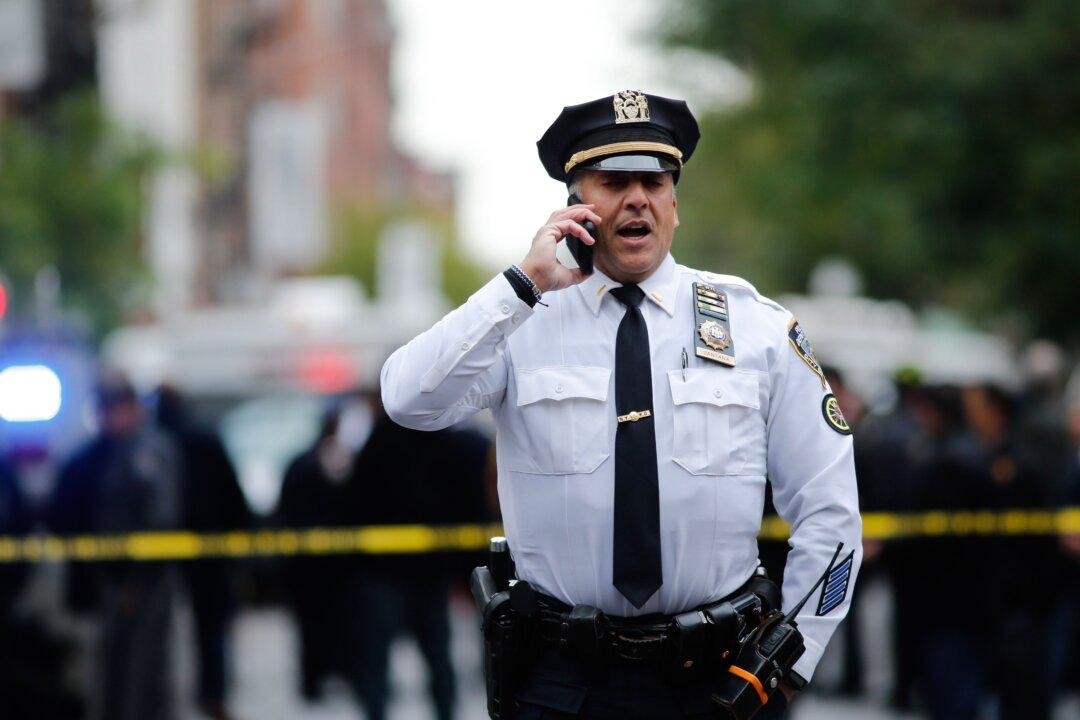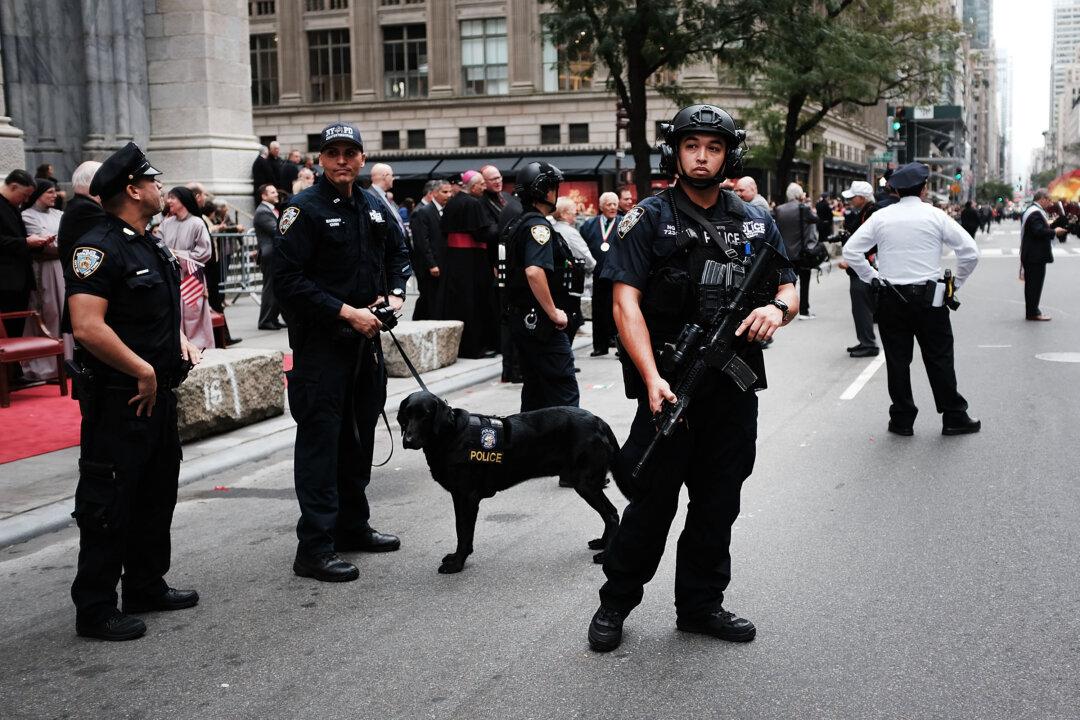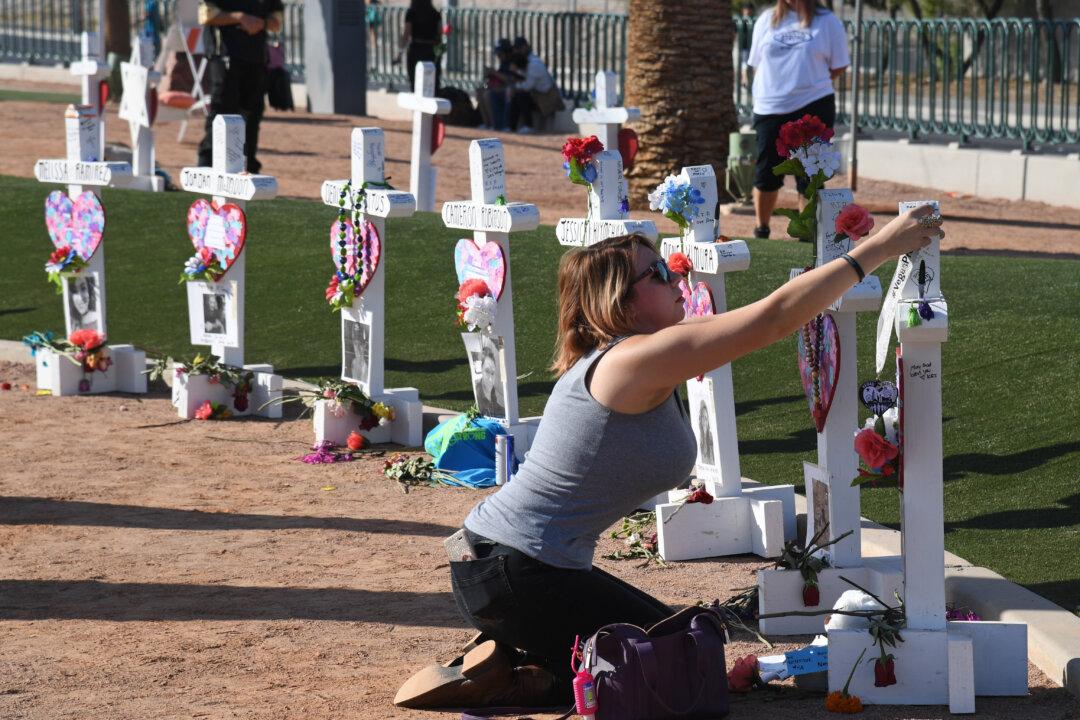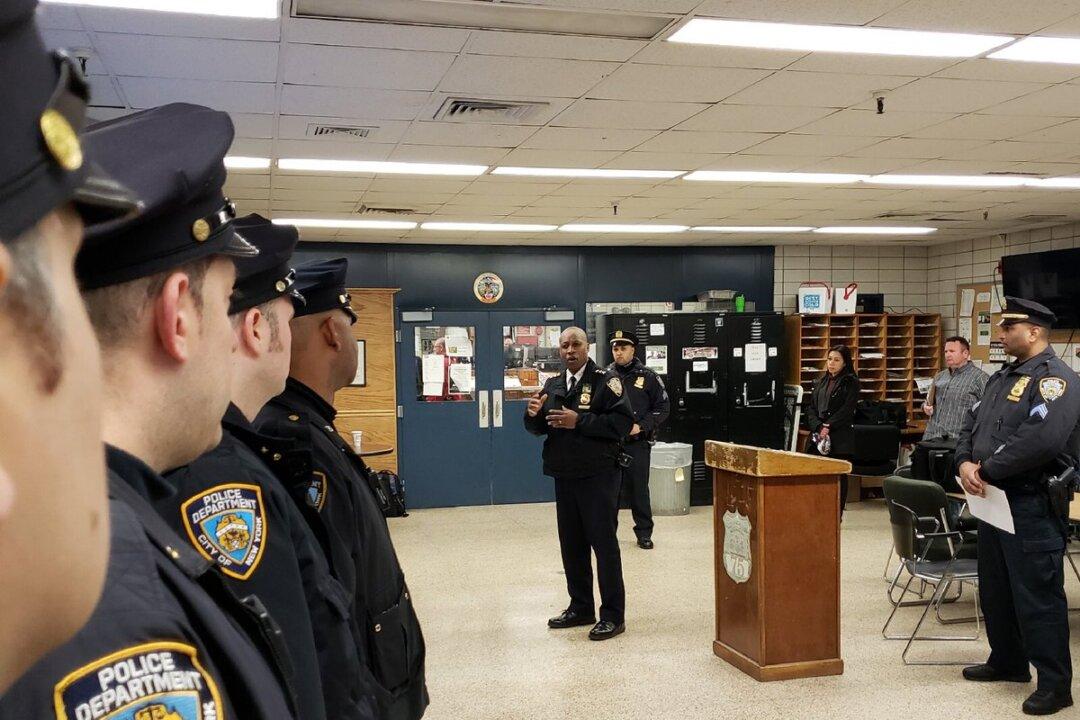
Recently, I shared remarks to an assembly of 150 police chiefs, community leaders, private security directors, and law enforcement officials including the FBI, on American policing issues.
These remarks were delivered at the Bergen County Police Chiefs Association (BCPCA) event in Alpine, New Jersey, on April 21.
The BCPCA is comprised of over 70 police agencies within the county; numerous city, state, and federal law enforcement agencies, private security professionals, and community leaders.
This unity of action from the public and private sectors is reflected in their mission statement:
“To secure a closer official and personal relationship among police officials in the County of Bergen; to secure unity of action in police matters; to elevate the standards of police institutions; to strive for advancement among all lines that pertain to the prevention and to the detection of crime and the promotion of police efficiency in general.”
